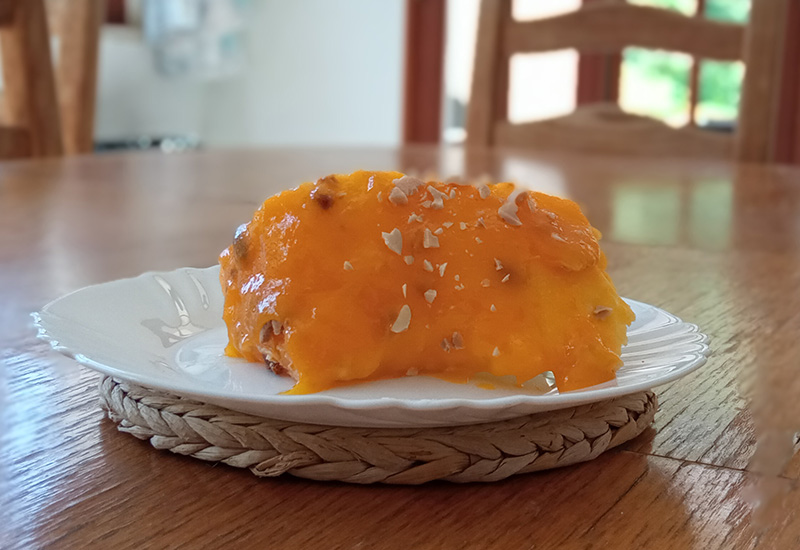The Portuguese dessert with an Eastern European name
It has always been said that the Moors left three things in Portugal after the Reconquista of the Iberian peninsula in the eighth century AD: palm trees, ceramics and sweet desserts. So how did one of the nation’s best-loved puddings end up sharing the same name as a Soviet politician? I decided to delve a little further to try and shed some light on this mystery.
Sat in a small café on a cobbled back road in Portimão, I ordered myself a Portuguese classic, pudim molotof, a sickly sweet meringue-like dessert covered in a caramel sauce and topped with a dash of honey. It was the “go-to” dessert alongside the similar pudding flan during my childhood in the 90s and its popularity continues today along with its oddly non-Portuguese name.
It is believed that the molotof dessert was originally called malakoff pudding and was named after the former Malakoff fortress, which once protected the city of Sevastopol on the Crimean Peninsula.
During the Crimean War that took place between 1853 and 1856, the French General Aimable Pélissier took the Malakoff fortress and received the title of the 1st Duke of Malakoff, which was soon associated with a wartime dessert made of leftover egg whites. Thus the name Malakoff pudding was born. It is believed that Malakoff is a variation of the name Malakhov which first derives from the name of the Prophet Malachi (d. 312 BCE).
By World War II, former Bolschivik, Vyacheslav Mikalovich Skriabine (1890–1986) was appointed as the Minister of Foreign Affairs of the USSR and later the deputy chairman of the Council of Ministers. Like many of his contemporaries in the Soviet Union, Vyacheslav Skriabine, while in hiding, took a pseudonym. He chose the name Molotov – which derived from the Russian word molot meaning “sledgehammer” – as it sounded industrial. Other examples of the era include the first leader of the Soviet Union Vladimir Ilyich Ulyanov, who adopted the name Lenin after the river Lena and his successor Joseph Besarionis dze Jughashvili, who took the name Stalin, meaning “steel”.
With Molotov becoming a widely known figure across the world, it is likely that due to confusion with the name and origin, the Portuguese people started calling the dessert pudim molotof instead of pudim malakoff. Although the question of how the name travelled over five thousand kilometres to the Portuguese border is unclear, it is fair to say it is of Eastern European descent; however, its home is definitely here in Portugal, even though we’ve been calling it the wrong name for decades!
Pudim molotof recipe
If you want to try your hand at making pudim molotof or should I say pudim malakoff, I managed to sweet talk (no pun intended) my neighbour into sharing her (now not so) secret recipe of just four ingredients. In her words, “it’s so simple, even a child can make this”. Thank you, Dona Fernanda.
Ingredients:
- 10 egg whites
- 10 tablespoons of sugar
- 2 cups of liquid caramel.
- The zest of one lemon
First beat the egg whites in a mould and add the sugar while continuing to beat the egg whites. When the whites are very firm, add the lemon zest and mix slowly. Add the liquid caramel and tap the pan on the counter to remove the air.
Place in a preheated oven at 180°c and bake for 10 minutes until golden brown. Turn off the oven and be careful not to open it for 30 minutes. Leave to cool and unmould. Serve and
Enjoy!













